Witness - [12]
She felt a little teary but once she was back doing her visits it passed. One of her mums-to-be showed signs of pre-eclampsia and Fiona organized a hospital admission. Another had worrying levels of sugar in her urine and Fiona recommended she see her GP: it happened to some women and not others, but they needed to consider whether there was any risk of diabetes. She went about her work: changed four nappies on newborns, dressed umbilical stumps, comforted a toddler, gave an anxious mum some help getting the baby to latch on properly and removed stitches from a tear. At each house there were papers and charts to complete. She called at the office at the end of the day. Shelley had checked her schedule and asked for a word.
‘Do you want to swap Carmen Johnson for another second-weeker?’
Carmen Johnson was the woman whose house overlooked the recreation ground. The woman Fiona was with when she saw Danny fall. Carmen was in her second week of motherhood and now only receiving visits every other day. Soon the midwives would stop calling and the health visitor would take over.
‘No, I’ll be fine,’ Fiona said.
‘Just yell,’ Shelley told her.
‘I will.’
Nothing had prepared her for the impact of returning there. As she drove closer she felt her guts cramp and her palms grow hot and sticky. She admonished herself. ‘It’ll be fine. Don’t be daft. Take it easy. It’s just a place.’ Fiona tried to empty her mind, let it fill with grey fuzz.
She turned off the dual carriageway alongside the rec. The tent and the police tape were gone but there was a police Portakabin at the northern side of the rectangle. And a splash of colour by a lamppost. Flowers. She should have bought flowers! Her thoughtlessness cut at her. She parked outside Carmen Johnson’s, gathered her bag and case, got out and locked the car.
She knocked on the door. Her face felt rigid, a mask. She tried to rearrange her features as the door opened. ‘Hello-’ The word caught in her throat, husky. She coughed.
Carmen looked perplexed, she wouldn’t meet Fiona’s eye. ‘We’re fine,’ she said. She wrapped her arms around herself, rubbed at her upper arms with her hands. ‘We don’t need a visit.’
‘It’s every other day now,’ Fiona explained. Not understanding. ‘We’ll be handing over to the health visitors soon, all’s going well.’
‘Look.’ Carmen’s eyes were everywhere, her mouth working. ‘I just don’t want any trouble. That’s how it is.’ She closed the door.
Fiona stood there, her knees weak, feeling humiliated, shamed. Her cheeks aglow, her pulse hammering. Aware at first only of the bald rejection. The door closed on her. There had been times before: women resistant to visits, not wanting interference, women with things to hide or a damaged view of professionals. But this sudden switch…
Then she got it. She was ‘the trouble’. Because of what she’d seen, what she’d done. Much had already been made in the media of the community living in fear, afraid to speak out. Carmen lived here. She might have a good idea who was behind the shooting and how they ensured people’s silence. Carmen was simply protecting herself and her baby.
Fiona was back in the car, still smarting, when the pain hit. A band crushing her chest, impossible to move or breathe properly. A huge weight. She could feel her lungs contracting, the terror of a vacuum developing. Like drowning. No air, no way of moving. Sweat bathed her skin, her tongue felt huge in her mouth, her mouth chalk dry. An overwhelming sense of danger, animal-keen, consumed her, urging her to flee, but she was pinned down by the pain. She was dying. Everything went dark, then red. There was a roaring in her ears and her hands and feet were nettled with pinpricks. Her knees were juddering, heels drumming in the footwell.
She gulped and found a breath, then another. The pain dimmed, her vision cleared. Trembling spread through her body. She felt sick. Her heart hurt, thudding irregularly in her chest. She couldn’t possibly drive. Her eyes filled with tears.
Opening her phone was awkward but she only needed to press one button for Shelley’s number.
‘Please can you come and get me,’ she told her when she answered. ‘Get a cab.’
‘What?’
‘I can’t drive, Shelley.’ She reeled off the address.
‘Why? What’s happened?’
‘I need to get to the hospital. I’m having a heart attack.’
The shaking wouldn’t stop, and the waves of nausea. Every time she closed her eyes, with each blink, she saw a still from Sunday: Danny prone, his leg twisted at an odd angle, blink, the fear in his tawny eyes, blink, the blood in the creases of her knuckles.
When Shelley arrived she was alive with concern. ‘Why on earth didn’t you call an ambulance?’
‘I don’t know.’ Because the ambulance was too much like Sunday? ‘It’s much better now. Perhaps it’s just angina.’
Of course A &E was busy. It always was. She spoke to the triage nurse, filled in the form and took a seat in the shabby waiting area, all lumpy green gloss paint and scuffed linoleum. There were two dozen people on the chairs.
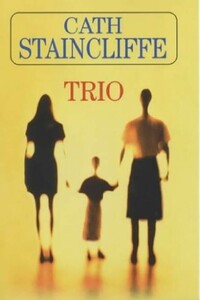
1960, Manchester. Three young Catholic women find themselves pregnant and unmarried. In these pre-Pill days, there is only one acceptable course of action: adoption. So Megan, Caroline and Joan meet up in St Ann's Home for Unmarried Mothers to await the births of their babies. Three little girls are born, and placed with their adoptive families. Trio follows the lives of these mothers and daughters over the ensuing years.
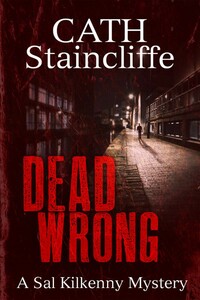
Single mother and private eye, Sal Kilkenny, has two very frightened clients on her hands. One, young mother Debbie Gosforth, is a victim; the other, Luke Wallace, is afraid he is a murderer. While Sal tries to protect Debbie from a stalker, she has to investigate the murder of Luke's best friend.

Your husband, your family, your freedom. What would you sacrifice for love? A love story, a modern nightmare and an honest and incisive portrayal of a woman who honours her husband's wish to die and finds herself in the dock for murder.When Deborah reluctantly helps her beloved husband Neil end his life and conceals the truth, she is charged with murder. As the trial unfolds and her daughter Sophie testifies against her, Deborah, still reeling with grief, fights to defend her actions. Twelve jurors hold her fate in their hands, if found guilty she will serve a life sentence.
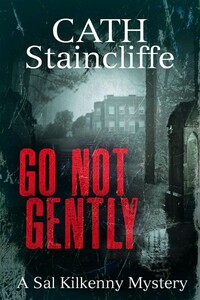
From the author of LOOKING FOR TROUBLE, a further crime novel featuring private investigator Sal Kilkenny. When a man is distraught at his wife's apparent infidelity, he enlists the help of Sal to confirm his suspicions, only to find himself a widower soon afterwards. From there Sal's other case also begins to take a disturbing and violent turn.

The fourth Blue Murder novel written by the creator of the hit ITV police drama starring Caroline Quentin as DCI Janine Lewis.A well-respected family GP is found shot dead outside his surgery; who could possibly want to kill him? As DCI Janine Lewis and her team investigate they uncover stories of loyalty, love, deception, betrayal and revenge.Praise for the Blue Murder books'Complex and satisfying in its handling of Lewis's agonised attempts to be both a good cop and a good mother.' The Sunday Times'Uncluttered and finely detailed prose.' Birmingham Post'Beautifully realised little snapshots of the different characters' lives… Compelling stuff.' Sherlock Magazine'A swift, satisfying read.' City Life'Precise and detailed delineation of contemporary family relationships.' Tangled Web'Lewis seems set to become another very popular string to Staincliffe's bow as one of the leading English murder writers.' Manchester Metro'Pace and plenty of human interest.' Publishing News'Blending the warmth of family life with the demands of a police investigation.'Manchester Evening News'Juggling work and family is a challenge of modern life and encountering realistically portrayed women with family responsibilities is a pleasure.
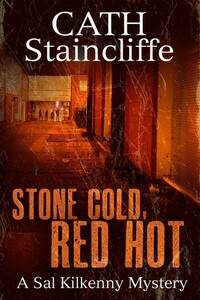
When private eye Sal Kilkenny is asked to discover the whereabouts of Jennifer Pickering, disinherited by her family twenty years ago, it seems that Jennifer does not want to be found. Despite her initial reservations, as the events of the past gradually unfold, single-mum Sal finds that she is becoming engrossed in the case. There are dark secrets waiting to be uncovered but can Sal break the conspiracy of silence that surrounds this mystery? As she spends her days tracing Jennifer, Sal's nights become shattered by an emotional and often dangerous assignment with the Neighbour Nuisance Unit on one of Manchester's toughest housing estates.
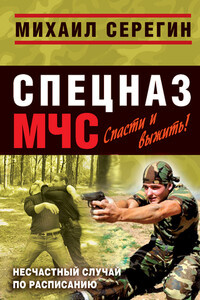
Будни спасателей нельзя назвать серыми. Каждый день автокатастрофы, случайные ранения, суициды... Но сотрудники МЧС относятся к этому с пониманием: от несчастного случая не застрахован никто, все мы под богом ходим. Однако история с мальчиком Вадимом заставляет их усомниться в том, что это несчастный случай. Уже не в первый раз приезжают они спасать нерадивого мальчугана. Вот и теперь ЧП – пацан выбрался из окна на карниз шестого этажа... За что судьба так жестоко испытывает мальчика, подвергая его жизнь смертельному риску? И судьба ли? На досуге спасатели начинают «играть в сыщиков», вспоминая мальчика и выдвигая различные версии случившегося.

На горнолыжной базе «Джаловчат» в вагоне канатной дороги застряли парень с девушкой. На помощь им примчалась бригада спасателей МЧС – Борис Мостовой, Олег Чистяков и Ольга Синицкая. Вызволить горемычную парочку – дело техники. Но приключения спасателей еще только начинаются… Внезапно в горах происходит обвал, блокирующий единственную дорогу с базы. И в это же время спасатели находят под обрывом автомобиль, а в нем – водителя со смертельным ножевым ранением. Убийца не мог прорваться через завал, а значит, он где-то на базе, среди отдыхающих.

Фармацевтическая фирма «Гелиос» с размахом праздновала день рождения одной из сотрудниц. В самый разгар торжества был найден труп любимой собаки начальника. Подозрительное происшествие совпало с исчезновением хозяина фирмы Бориса Гольдмана, что привлекло внимание милиции. Следователь Тарасов хладнокровно взялся распутать клубок интриг и разоблачить преступный клан. Все его подозрения сходятся на противоречивой фигуре Марты, коммерческого директора «Гелиоса» и по совместительству жены Гольдмана…

Одержимому высокой идеей человеку невольно покоряются и чистые сердца, и погрязшие в грехах души — этой идеей Ги де Кара обязательно увлечётся читатель романа «Храм ненависти». Он интересен и любителю психологического романа, и поклоннику детектива.

В книге рассказывается история главного героя, который сталкивается с различными проблемами и препятствиями на протяжении всего своего путешествия. По пути он встречает множество второстепенных персонажей, которые играют важные роли в истории. Благодаря опыту главного героя книга исследует такие темы, как любовь, потеря, надежда и стойкость. По мере того, как главный герой преодолевает свои трудности, он усваивает ценные уроки жизни и растет как личность.

«Золотая пуля». Так называют в городе агентство, в котором работают журналисты-инвестигейторы (или, в переводе на русский — «расследователи»). Возглавляет это вымышленное агентство Андрей Обнорский — герой романов Андрея Константинова и снятого по этим романам телесериала «Бандитский Петербург». В «Золотой пуле»-3 вы встретитесь не только с Обнорским, но и с его соратниками-журналистами: Николаем Повзло, Зурабом Гвичия, Светланой Завгородней, Нонной Железняк, Георгием Зудинцевым и другими. Все они попадают порой в опасные, а порой и комичные ситуации.